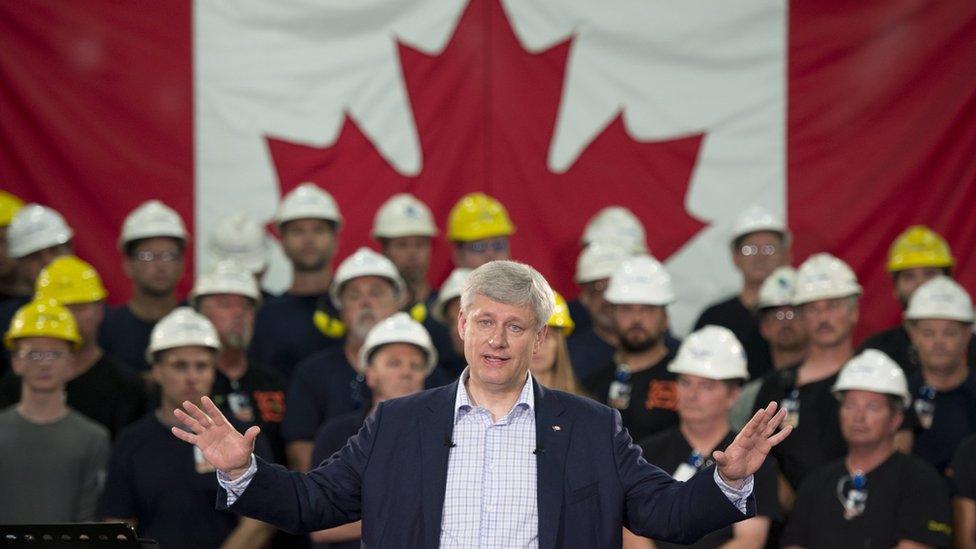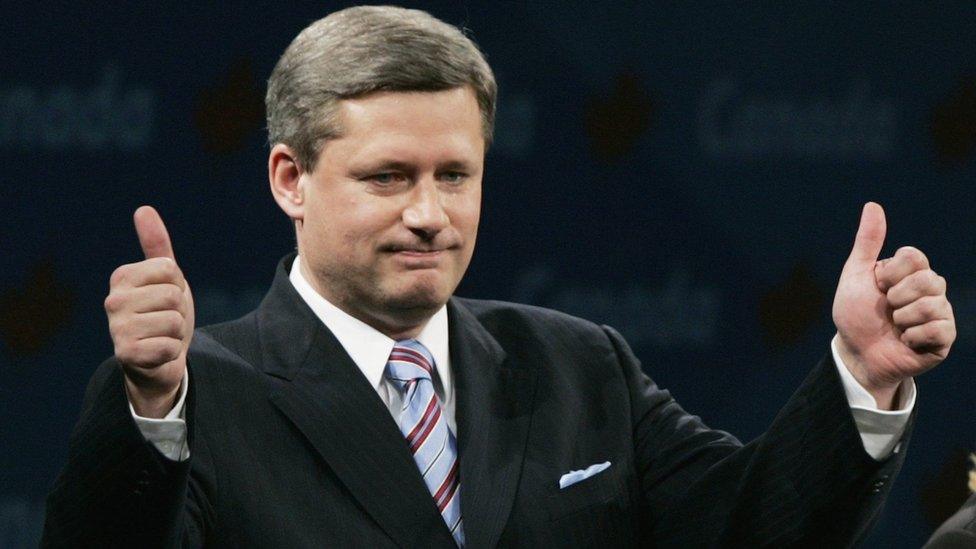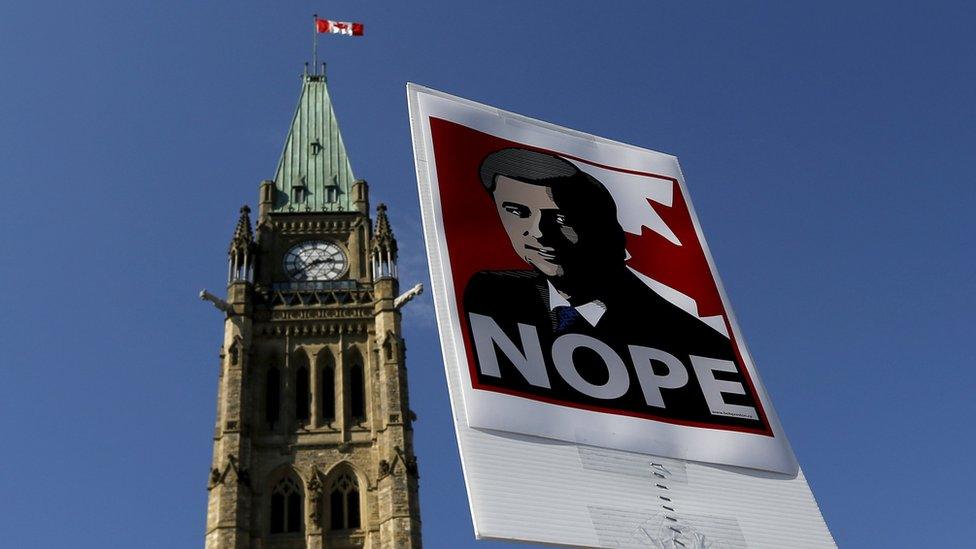Profile: Stephen Harper, ex-prime minister of Canada
- Published

After three election victories and 10 years leading the country, former Prime Minister Stephen Harper has left Canadian politics, upon which he left such an indelible mark.
Born in Toronto, Ontario, in 1959, Mr Harper became involved in politics while still at school.
After obtaining a masters degree from the University of Calgary he went on to work as a political aide.
Mr Harper won a parliamentary seat for the Reform Party in 1993, but quit four years later to work for a conservative lobby group.
He returned to parliament in 2002 as head of the Canadian Alliance and leader of the opposition. A year later his party merged with the Progressive Conservative Party of Canada.
Hardliner to progressive
The new Conservative Party, with Mr Harper at the helm, reunited Canada's political right after years of disarray.
But the father-of-two could not beat Liberal Party leader Paul Martin in the 2004 election, and Mr Martin was able to form a minority government.
Observers say the Conservative Party's controversial statements on abortion and same-sex marriage lost them key votes on that occasion.
Next time around, Mr Harper - a keen strategist - managed to marginalise the more extreme elements of his party.
His election as Canada's prime minister in 2006 reversed more than a decade of Liberal Party rule in parliament.
It also completed Mr Harper's transformation from hard-line right-winger to a progressive conservative with a party positioned at the centre of the political spectrum.

In 2006, Harper ended 13 years of Liberal rule
Sometimes seen as an aloof figure more at home with a spreadsheet than working a crowd, the Alberta MP managed to stay at the helm of a minority government longer than expected.
Accusations that he was a pro-Bush "extremist" who would curb abortion rights and put an end to same-sex marriages failed to stick.
But he was also helped by the disarray among the opposition Liberals and a perceived lack of appetite among Canadians to head back to the polls.
After two years he called for a snap poll a year ahead of schedule, complaining that parliament was "dysfunctional" and deadlocked.
In the 2008 election he increased his party's seats but still fell short of holding a majority.
But he received a fillip the following year when the newly-inaugurated Barack Obama chose Canada as the destination for his first foreign trip as US president.
Mr Harper received a lot of criticism in 2010 over the $1.1bn cost (US$1.1bn; £730m) of staging the double summit of G8 and G20 leaders in Toronto.
A temporary water feature dubbed the "fake lake" came to symbolise what many critics saw as Mr Harper's extravagant spending.
By the time his opponents triggered the 2011 election, though, Mr Harper was able to present himself as the stable, familiar guiding hand of Canadian politics.

His critics say he has taken Canada too far right
His measured campaign messages clearly hit home, and with the Conservatives' political rivals failing to challenge them in the polls, Mr Harper was able to secure the majority that had previously eluded him.
Under Mr Harper the party took 54% of the seats in parliament, securing a third consecutive term and transforming their minority government into a majority.
Mr Harper ran a tightly focused campaign concentrating largely on his government's record in managing the economy, which had emerged from a recession as one of the strongest among the G7 group of countries.
But four years later, it's the economy that proved his Achilles heel, with the country officially entering recession at the start of the election campaign.
He was under fire for his low spending, low taxes policies, and was at odds with his political opponents over the bombing campaign against Islamic State in Syria.
A lone gunman attack on the parliament building in Ottawa proved to be a pivotal moment. Mr Harper pushed through Bill C-51, which increased policing and surveillance powers despite an outcry from civil liberty campaigners.
He lost the election to the fresh-faced, energetic Justin Trudeau, and resigned as Conservative leader.
Ten months later, he quit his seat in Calgary, signalling the end of his decades-long association with politics, to focus on business interests.